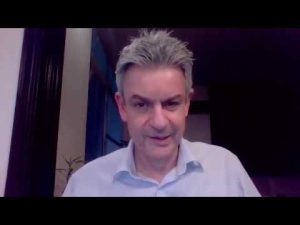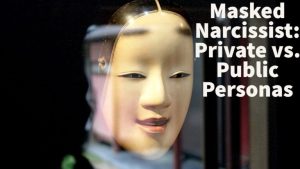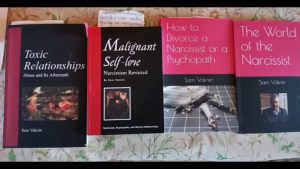- 1.1 Introduction to Self-Regulation and the Concept of Self
- 1.2 Definition and Nature of Self-Regulation
- 1.3 Relation of Self-Regulation to Mental Health
- 1.4 Social Context and Misleading Terminology
- 1.5 Self-Control and Impulse Regulation
- 1.6 Psychopaths and Goal Orientation
- 1.7 Impulses, Impulse Control, and Related Disorders
- 1.8 Pleasure Principle and Neurobiological Underpinnings
- 1.9 Self-Management vs. Self-Regulation
- 1.10 Behavioral Therapy and Applications of Self-Regulation
- 1.11 Emotion Dysregulation and External Regulation
- 1.12 Closing Remarks
Healthy Self-regulation vs. Dysregulation
Introduction to Self-Regulation and the Concept of Self
- The speaker introduces the concept of self-regulation, emphasizing that it implies there is a “self” that can regulate emotions, moods, and behaviors, though this concept may be misleading because the self might be fluid and in flux. The idea of an internal regulatory authority akin to a police or lawbook is challenged as inaccurate. [00:00]
Definition and Nature of Self-Regulation
- Self-regulation is primarily about controlling behavior rather than purely internal processes. It involves self-monitoring through introspection, reflection, and self-awareness, followed by self-evaluation and self-reinforcement, rewarding or punishing oneself based on behavior outcomes. It emphasizes goal-oriented behavior that is self-enhancing and protective against self-destructive actions. [03:30]
Relation of Self-Regulation to Mental Health
- Mental health disorders such as borderline personality disorder illustrate deficiencies in self-regulation, as patients often engage in self-defeating and self-destructive behaviors. Behavior therapy focuses heavily on self-regulatory processes, reinforcing its behavioral nature. [07:00]
Social Context and Misleading Terminology
- Self-regulation cannot be separated from the social and relational context since many behaviors are triggered or directed at others. The term “self” is misleading, and perhaps “self-other regulation” would be more accurate. The fluidity of the “self” itself complicates traditional views. [09:30]
Self-Control and Impulse Regulation
- Self-regulation is equated with self-control, defined as the ability to regulate overt and covert behavior and inhibit impulses. Self-control involves choosing long-term positive outcomes over short-term rewards and avoiding adverse consequences. Impulsiveness represents failure to do so. Self-discipline underpins this process by enabling delayed gratification and adherence to goals. [12:30]
Psychopaths and Goal Orientation
- Although psychopaths exhibit goal-oriented behavior and appear self-disciplined, their preference for short-term, impulsive goals differentiates them from psychologically healthy individuals who prefer long-term desirable outcomes. Thus, psychopaths are less self-regulated despite superficial appearances. [18:00]
Impulses, Impulse Control, and Related Disorders
- Impulses are sudden urges to act, sometimes without deliberation (impulsion). Impulse control disorders reflect failure to resist harmful impulses and are components of multiple mental health issues like substance use and conduct disorders. Impulses are described as primitive, rooted in instinctual drives such as sex, hunger, and power. [20:00]
Pleasure Principle and Neurobiological Underpinnings
- Freud’s pleasure principle posits that humans are motivated by immediate gratification of instinctual drives, which aligns with modern neuroscientific views involving the dopaminergic system. The speaker critiques Freud for limiting the concept of impulses and highlights the role of delayed gratification developing over time as the ego and superego mature. [26:00]
Self-Management vs. Self-Regulation
- The speaker argues that “self-management” might be a more accurate term than “self-regulation,” focusing on controlling behavior in pursuit of personal goals. While impulses cannot be controlled biologically, their expression as actions can be inhibited by socialization, internalized values, and regulatory mechanisms. Excessive self-management may become rigid, leading to negative mental states, such as in schizoid personalities. [32:00]
Behavioral Therapy and Applications of Self-Regulation
- Behavioral therapy helps clients modify undesirable behaviors (e.g., smoking, overeating, aggression) by identifying problems, setting realistic goals, and applying contingencies to maintain positive behavior changes. This practical approach creates a regulatory system for behavior modification. [36:30]
Emotion Dysregulation and External Regulation
- Emotion dysregulation is a vital factor in borderline personality disorder. When internal resources for regulation are compromised, functions may need to be externally regulated, especially if early childhood disruptions prevented proper development of self-regulation abilities. The speaker points listeners to additional videos on external regulation and dysregulation to deepen understanding. [38:30]
Closing Remarks
- The speaker concludes with an invitation to explore more resources on the topic and sends regards from Paris. [41:20]
Note: Timestamps are approximated based on speech progression to match relevant discussion points.






